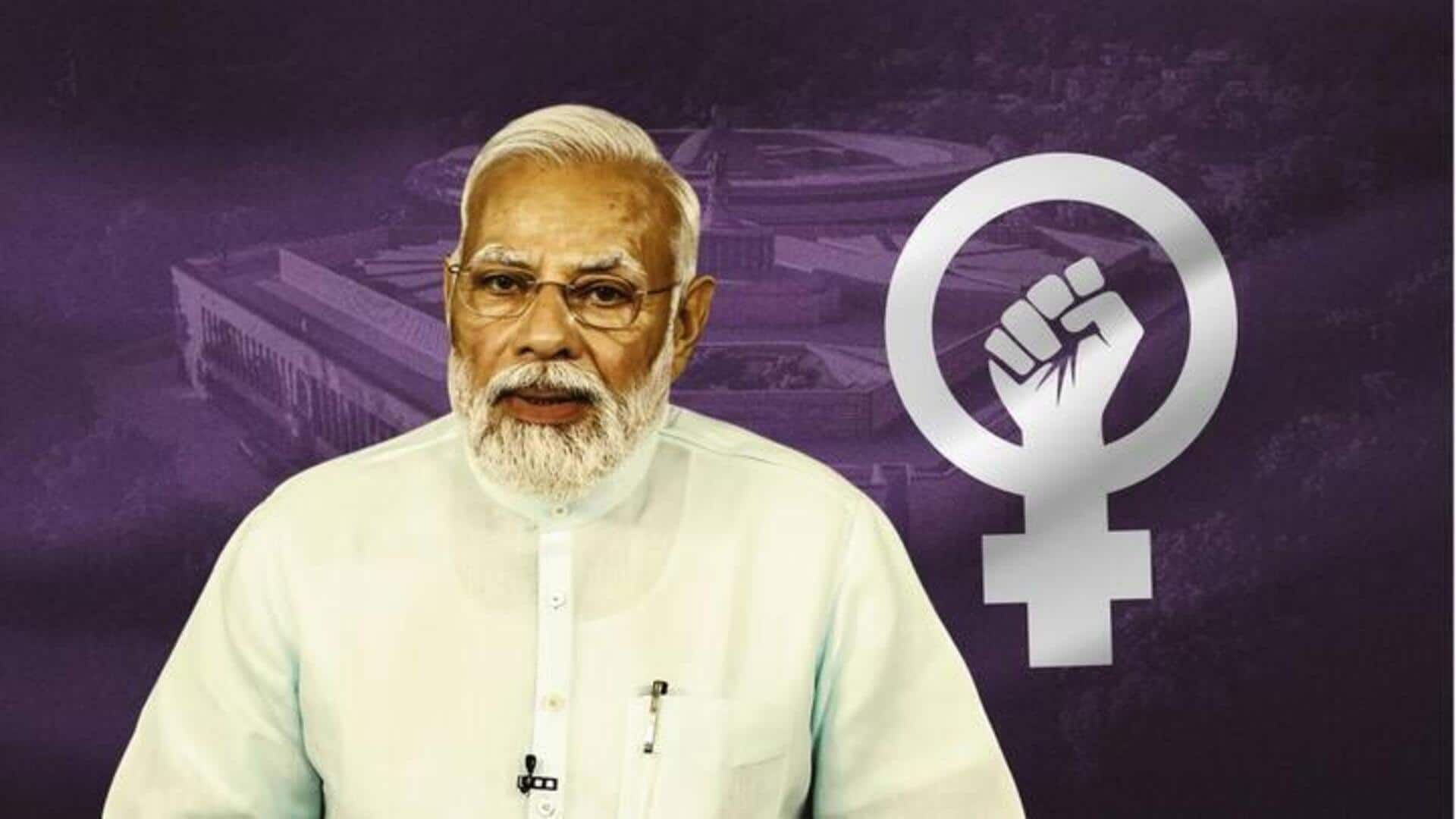
Cheaper gas to women's reservation: Major policy reforms in 2023
What's the story
In 2023, the Indian government initiated groundbreaking policy reforms.
Gas cylinder prices were restructured to enhance affordability, while reservations were made for women legislators. The taxation framework for online gaming also underwent revision.
Significantly, these changes may bolster the ruling Bharatiya Janata Party (BJP)'s bid for a third consecutive term in the 2024 general elections.
Here are all policy reforms that shaped 2023.
LPG
Price of domestic LPG gas cylinders slashed by Rs.200
In August, the Union Government announced a Rs. 200 cut in the prices of domestic liquefied petroleum gas (LPG) cylinders.
This resulted in the price of a 14.2 kg LPG cylinder going down to Rs. 903 from Rs. 1,103 earlier in Delhi.
For the Pradhan Mantri Ujjwala Yojana (PMUY) beneficiaries, the price was brought down to Rs. 703.
Women reservation
Women's Reservation Bill passed in Parliament
After nearly three decades of stalling, the Women's Reservation Bill—or the Naari Shakti Vandan Adhiniyam—was passed in both Houses in September.
However, the promised 33% quota for women in the Lok Sabha and state legislative assemblies might only be implemented by 2029.
Women can avail of the quota only after the first delimitation exercise following the bill's enactment, expected to occur after 2027 census.
Online gaming
28% GST on online gaming
In a major policy reform, the Union Government imposed a 28% GST on the amount paid at the entry level for online gaming.
Under the regulations—implemented on October 1—a 28% tax was imposed on the full value of bets placed in online games, regardless of whether they involved skill or chance.
The move was part of the government's efforts to regulate online real-money gaming.
High Spee rail
Bullet train to commence in 2026
High-speed trains have been at the center of the government's development policies this year.
At least 27 semi-high-speed Vande Bharat trains have been flagged off in 2023.
Moreover, Union Railway Minister Ashwini Vaishnaw announced the first bullet train to start operations in India by 2026.
The first bullet train will run between Ahmedabad in Gujarat and Mumbai in Maharashtra.
Laptop
Centre bans laptop import, reverses decision
In a rare move, the Union government rescinded a ban on the import of electronic items sans license just two months after announcing it.
On August 3, the Centre announced a ban on the import of personal computers, laptops, and tablets without a license to check the influx of Chinese electronics.
However, it reversed its decision after receiving severe backlash from traders and manufacturers.
UPI
Fee on UPI transactions
Starting April 1, an interchange fee of up to 1.1% was imposed on Unified Payments Interface (UPI) transactions done via prepaid payment instruments.
UPI payments made for fuel, education, agriculture, and utility using a wallet attract an interchange fee of 0.5-0.7%.
For education fees paid this way, the charge was capped at Rs. 15. Food shops, retail outlets, and contractors attract 1.1% interchange fees.